Ranch Report: The 18th McKenzie Bull Sale
Some folks still make a living off of raising livestock west of the Pecos
Last Tuesday, my lovely blue-eyed bride and I attended our 18th annual McKenzie Bull Sale. We were there for their very first one and had our son Roland, drive up from Alpine where he was attending Sul Ross State University.
Roland, Diann and myself at the first McKenzie bull sale
Our relationship with the McKenzie family goes back four generations. My grandfather knew Houston McKenzie’s grandfather, and my dad went to school in Fort Stockton with several of Houston’s relatives, most notably Roy Neal McKenzie. And our children have known their kids for close to 30 years now.
Roland, Hallie and Travis in front of Sarah and Lydia McKenzie.
When Houston first decided to do a bull sale back in 2006, he was pretty much working without a net. That first sale was held in their corrals, with hay bales stacked up for the seating. All bids and sales were recorded on paper. His auctioneer had just finished auctioneering school, and Houston’s bull sale was his first job.
This year it was all done digitally, with every member of the family, down to the grandchildren, participating.
People lobby hard every year to get the job of riding horseback to push the bulls into the pens. This was from 2017.
The most coveted job at the bull sale every year is moving the bulls from the pens up into the chutes so they can be fed one at a time into the sale arena. This is the only job that requires you to be horseback. All of the others are performed on foot. (“A man afoot is just half a man.” Old Texas Ranger saying.) For many years there were folks who lobbied hard for this job.
But this year, grandsons Mason and Kato were old enough to handle it.
Mason and Kato May, Houston and Laura McKenzie’s grandsons on their horses in the pens.
Before the sale, Houston and Laura feed all of the visitors, even those who are not bidding on the bulls in the auction. The entire thing has the feel of a family reunion as ranchers from all over Pecos County, and some from further away, return each year.
Lining up for the lunch.
One of the folks I always enjoy seeing is Walter Groth, and his wife Janet. Walter played football for Baylor University, then was drafted by the New York Jets in 1969. He went up to NYC, but said he couldn’t stand it, so he came back to the ranch down in Pecos County. A few years later Walter was the offensive line coach for tiny Marathon, Texas, the only six-man football team in UIL history to win a state championship playing against 11-man competition. It’s an incredible tale that Dave Campbell’s Texas Football wrote about here. (The story has to be read to be believed.)
Walter and Janet Groth enjoying the lunch in the McKenzie’s hay barn.
With lunch served, it was time to move on to the auction. Sarah and Lydia took their seats up in the auction booth alongside the auctioneer.
(L-R) Sarah’s son,Henry, Lydia McKenzie-May, the auctioneer and “the boss” Sarah McKenzie. (Don’t cross her!)
With that, the first bull was steered into the arena.
Bidding was brisk. The entire sale was a success. More to the point, it was a window into a vanishing way of life in Texas: ranches that make their income almost exclusively from livestock. Many of the large ranches out here have almost quit raising livestock because they get their money from oil royalties, or wind farms. Others sold out to corporations (D.R. Horton Homebuilders, McCoy’s Hardware) who use the ranches as corporate hunting retreats for their clients. But for the McKenzies and many of their neighbors, it’s still a cow-calf operation. It’s also a crowd of “ranchers” not “ranch owners” or hipsters from Marfa.
You also won’t see a single open road hat anywhere here. (I’m not a fan of this hipster accoutrement, and personally believe it is what you would get if Norman Lear decided to go cowboy.)
“What’s new Norman?”
“Not much, cowboy.”
You also see a lot of folks here who not only raise livestock but they also compete in rodeo competitions. Their jackets and belt buckles are on full display at the bull sale.
And they bring their kids, then turn them loose. A popular activity among the youngsters was whacking each other with the flags for the pens.
And I am proud to say that my lovely blue-eyed bride, Diann, worked the bull sale for her 10th year in a row. She cuts no slack!
Diann keeps a good humor at the check-in, check-out table.
It’s all part of a vanishing way of life, out here on the last frontier, in Pecos County, Texas.
As my dearly departed friend John Mac Carpenter used to say, “Marfa and Alpine have got better scenery, but Fort Stockton has better people.”
If you like this, then please subscribe, and forward to your friends!
Adios.





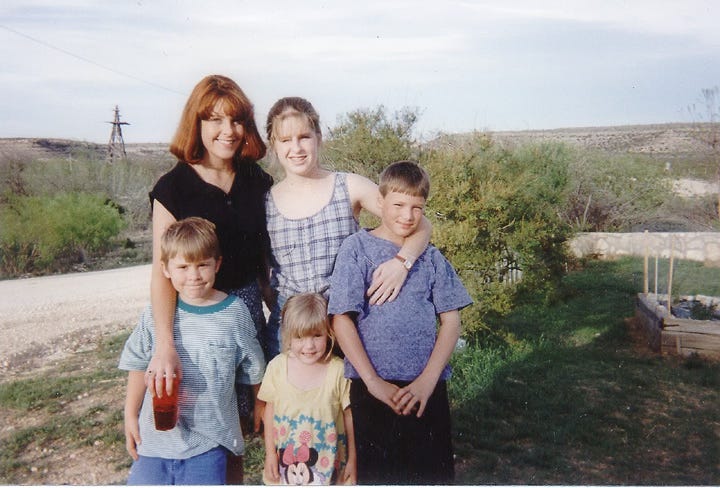
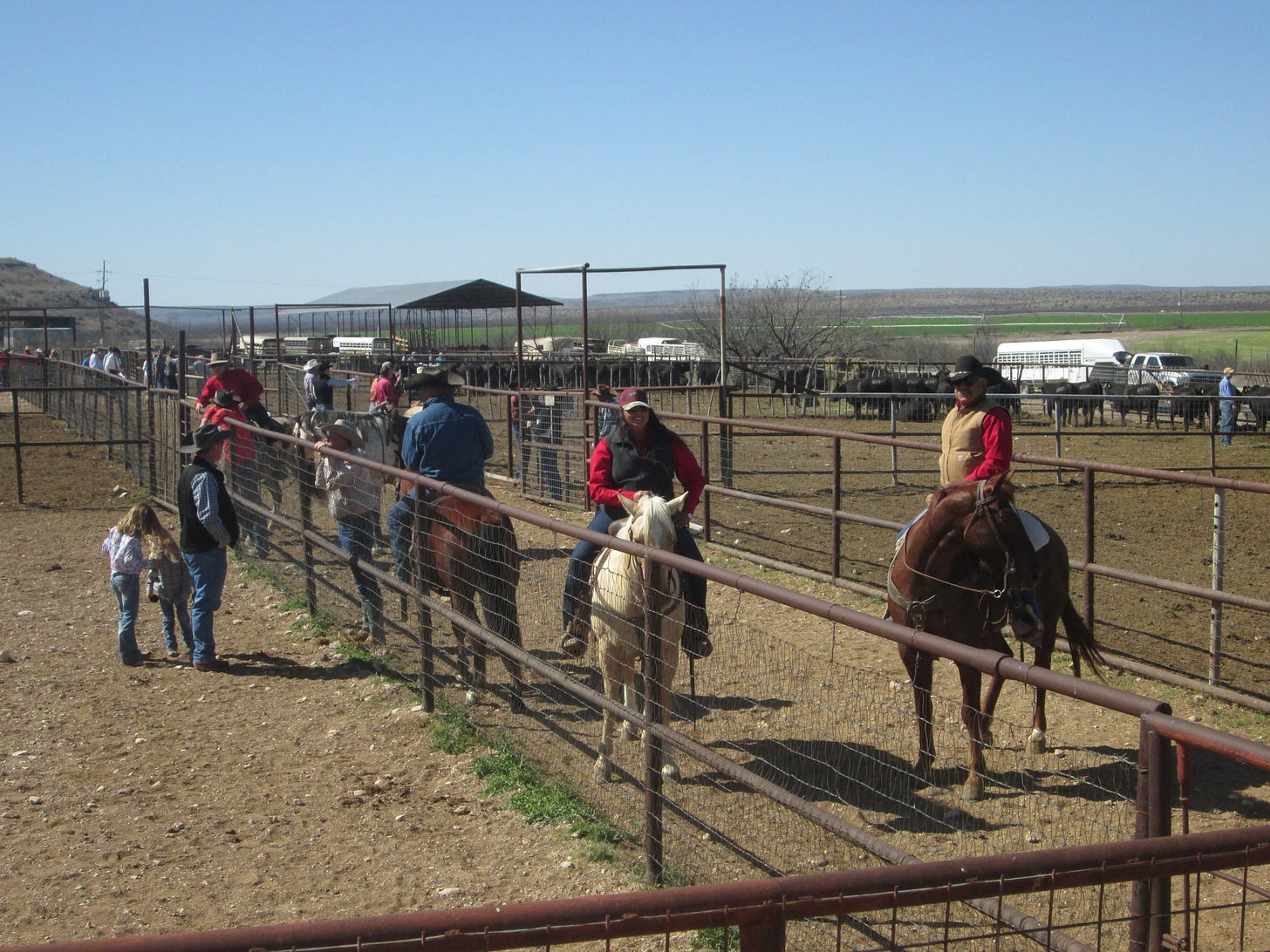
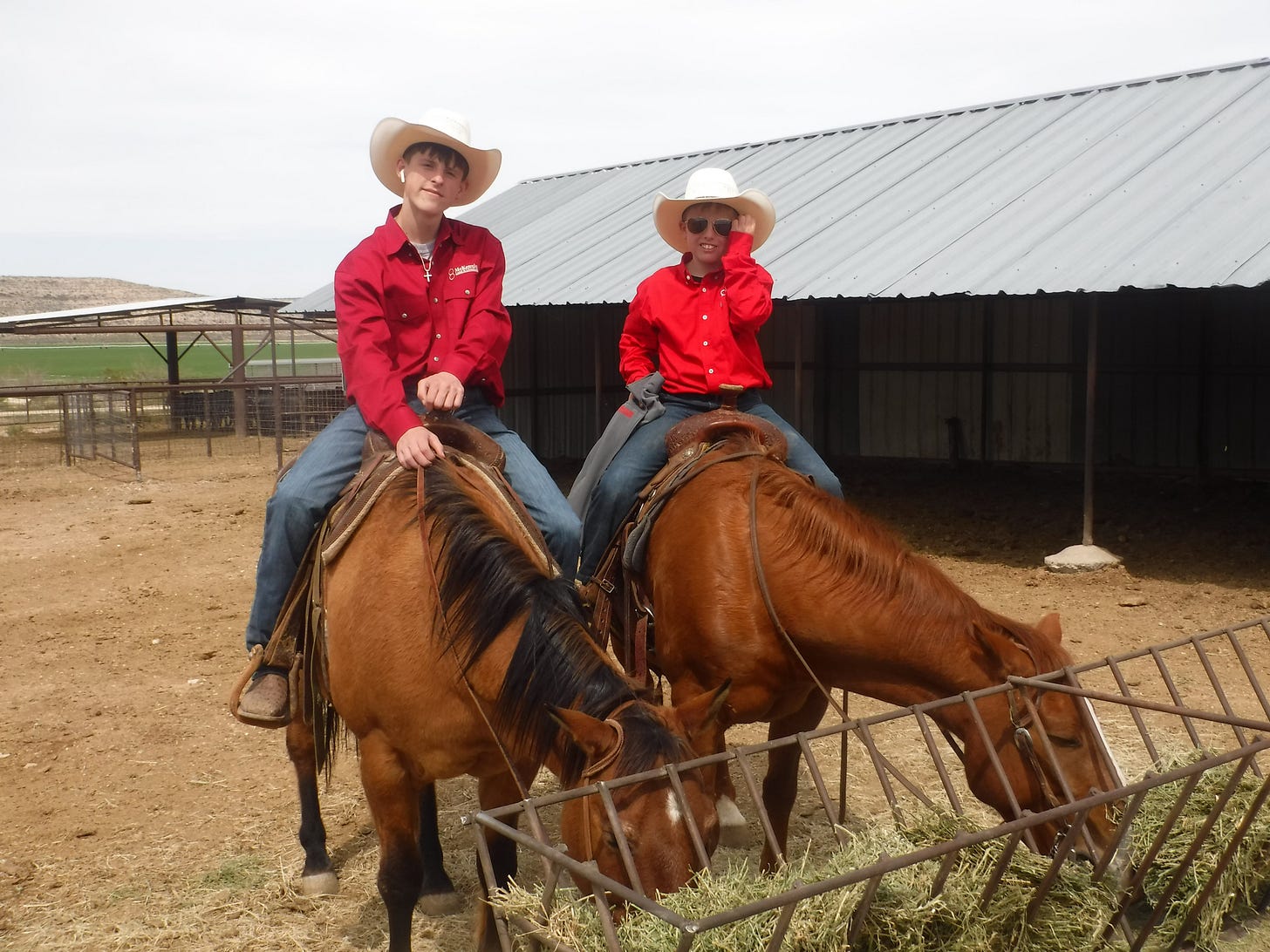
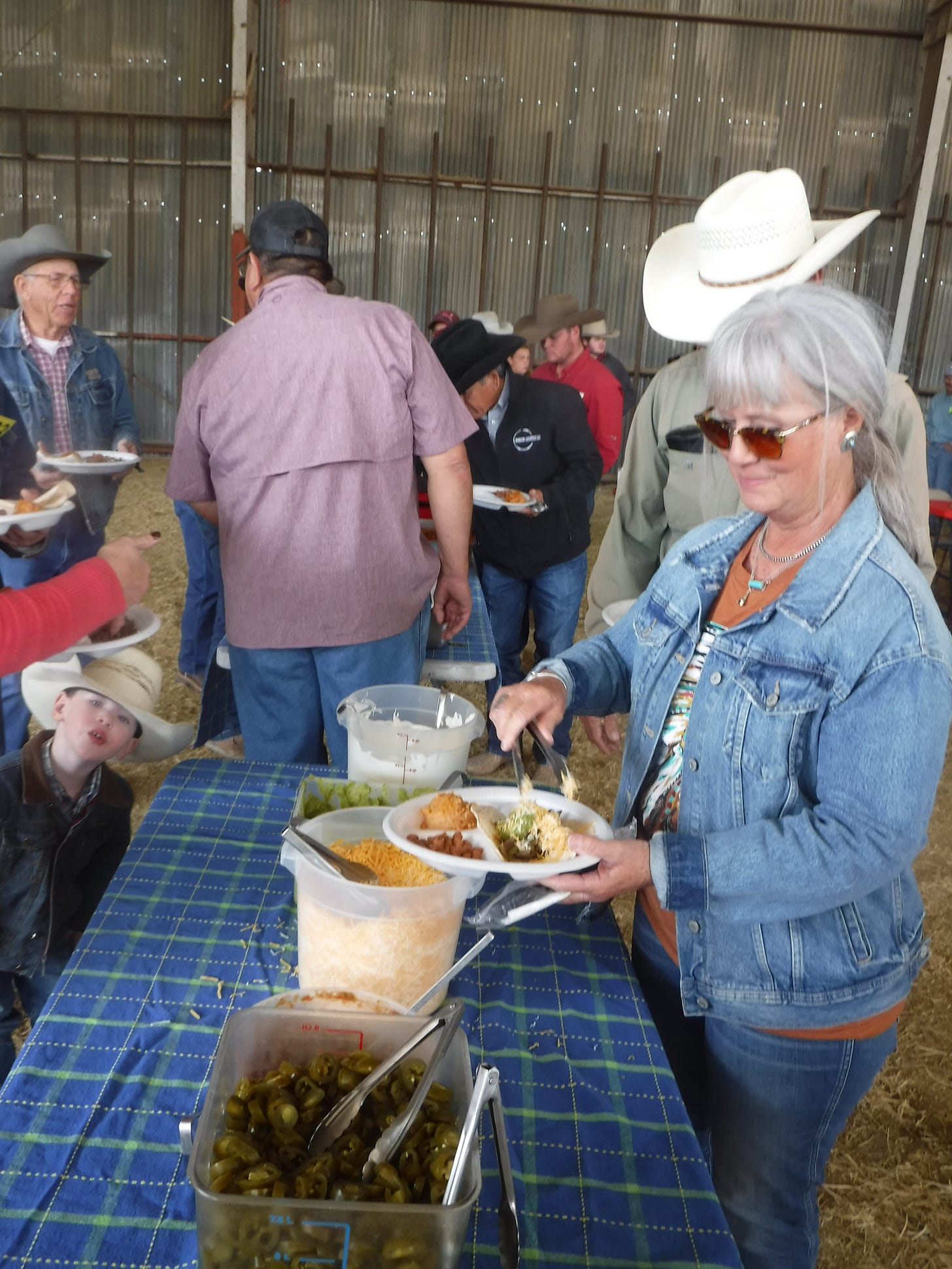

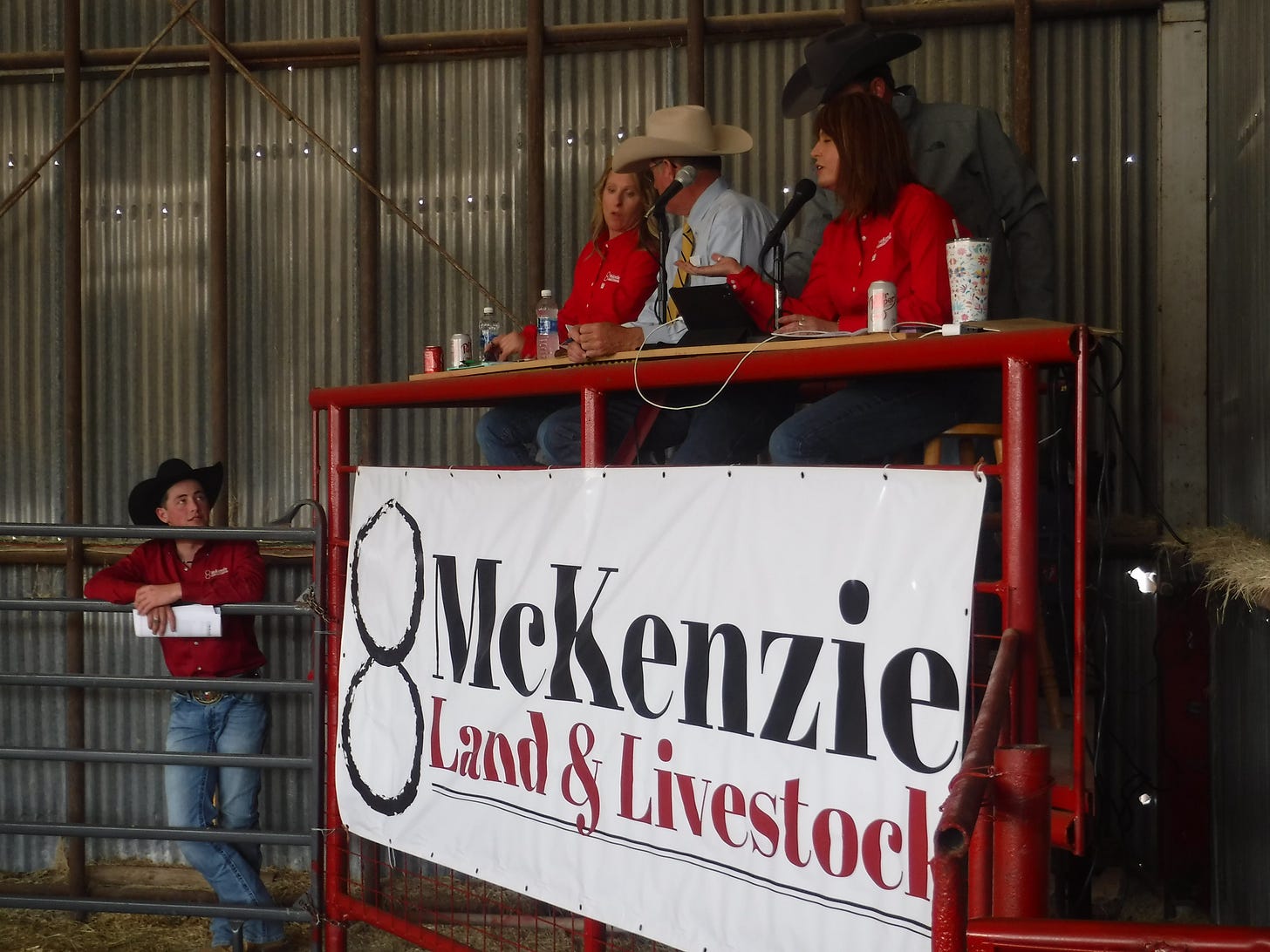
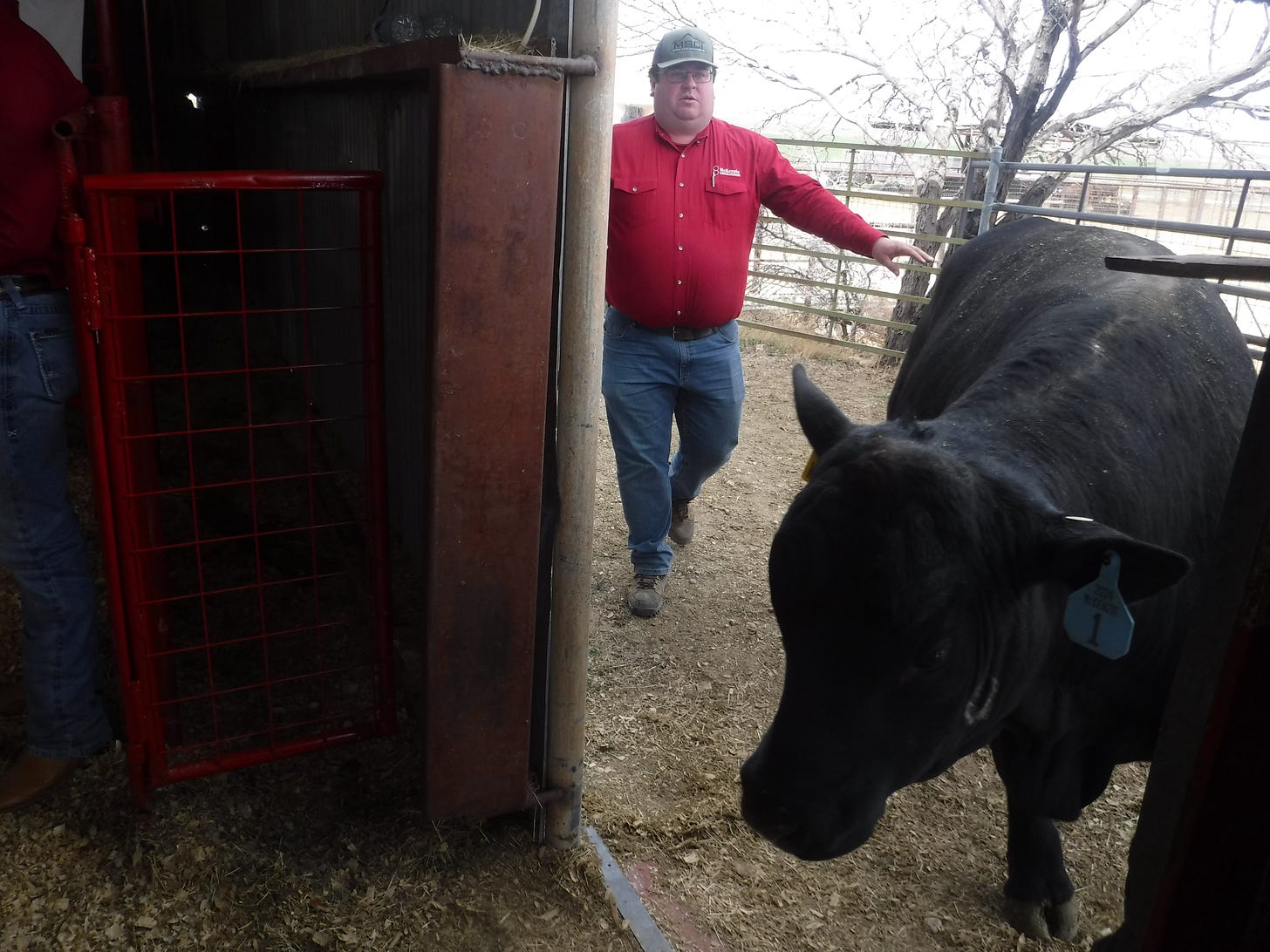

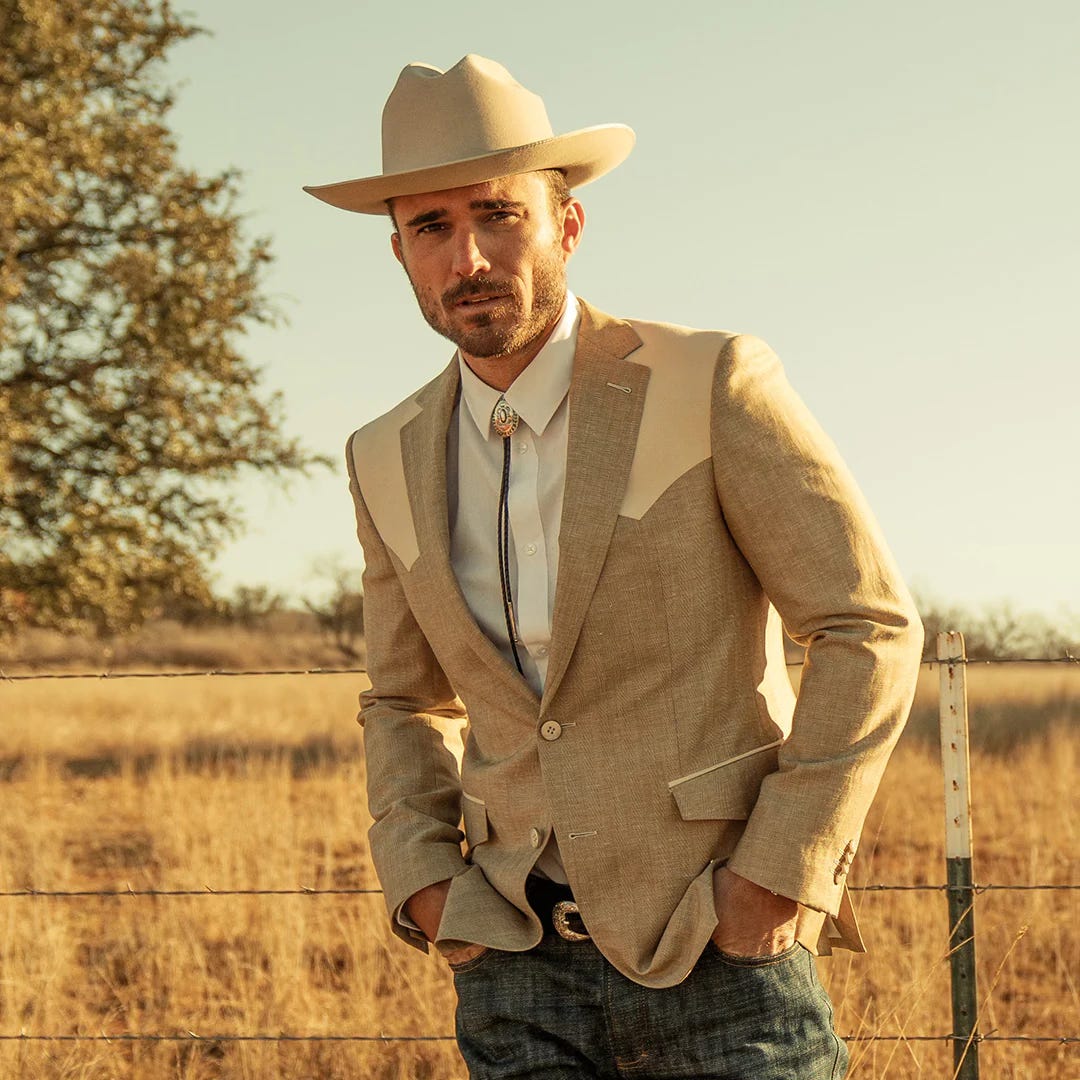




Delightful post! We can fix this vanishing ranch families problem, but it will take some work. Might want to start enforcing that packers & stockyards act, but that discussion is for another time.
Yesterday, my 82 year old pal Ms. Mary bought a new bull from S. Wilson over near Felt, Oklahoma. She didn't get the big ranch feed, but she got a fine Hereford bull for her easy-calving little herd in the Hi-Low country!